Assisted Living
Assisted living (AL) is semi-independent housing for adults who need help with their day-to-day needs but are able to make decisions on their own behalf.
Learn about services for people with physical and functional health challenges who can no longer live alone at home but can make decisions on their own behalf.

Assisted living (AL) is semi-independent housing for adults who need help with their day-to-day needs but are able to make decisions on their own behalf.
Eligibility is determined by a home health care manager.
To be eligible, you must:
According to the B.C. Ministry of Health, you may be eligible for Home & Community Care assisted living services if you:
and
Eligibility for publicly subsidized assisted living units is determined by your local Home and Community Care office – you do not need to contact the assisted living building directly.
Your care manager will assess you. After you agree to live in assisted living your name will go on a list for an available unit. Your care manager will continue to work with you to support your care needs until a unit is available.
When a unit becomes available, your care manager and assisted living staff will ensure that assisted living is still a good fit for you at the time of admission.
Due to the nature of this semi-independent setting, your eligibility may change over time if your health status changes.
For more information, view the Assisted Living in B.C. website.
You may need to pay a damage deposit when you move into assisted living. The monthly charge for subsidized assisted living is based on income. You will pay 70 per cent of your monthly after-tax income, up to a maximum amount. If you receive disability benefits from the Ministry of Social Development and Poverty Reduction, you will pay a fixed rate. Monthly charges are paid to the assisted living operator along with a hydro surcharge.
You may choose to pay extra costs when you live in assisted living. These are your choices – you’re not required to accept and pay for these services.
Once you have made the decision and located the right assisted living building for you, there are several things you can do to make your move easier. Remember that with any move, getting settled takes time.
Quite often, moving into assisted living means that you need to downsize. Think of this as a great opportunity to de-clutter your life and to give tokens of your appreciation to the people you care about.
Once you know what your new home looks like, take an inventory of your furniture and belongings. What do you want to take with you? What would you like to give to family and friends?
Many people hold garage sales these days. If you are moving in late spring, summer or early fall, you might enlist friends or family to help you hold a garage sale. Not only are you recycling but you can make some money at it, too!
You can also donate your extra furniture and household items to a local charity or a local second-hand or thrift store.
Pack a “first night box” for your first few nights in your new home. It will make the transition to your new home a lot easier. These are key things you will need before you have a chance to unpack all of your belongings.
In a well-marked box, consider packing:
Assisted living provides you assistance with personal care and/or medications and hospitality services in a private apartment unit. You maintain your independence and privacy while being supported with services such as meals, household laundry, housekeeping, and social and recreational activities. Assisted living services may be an option when home health services provided in your own home are not enough and you’re not ready to live in a long-term care home.
We develop a plan with you to meet your health and well-being needs and your preferences. Depending on your needs, services may include:
If you have personal care needs that cannot be scheduled, or happen irregularly, assisted living can help meet these needs.
Each site varies but the following positions are typical of the staff you may find in publicly subsidized assisted living:
Rehabilitation therapists, home health nurses and other professionals are accessible through your local Home & Community Care office.
The following hospitality services are provided:
Publicly subsidized assisted living is intended to be affordable for everyone, regardless of income. You pay 70 per cent of your after-tax income for a full package of services. Individuals with high incomes pay up to a maximum amount, based on the actual cost of accommodation, hospitality service and assisted living services.
You must meet the eligibility criteria to live in a publicly subsidized assisted living facility. Eligibility is based on your personal care needs. This funding cannot be transferred or used elsewhere.
Private pay assisted living services are available across B.C. If you are interested in private pay assisted living you can access these programs through the provider and do not need to be assessed by an Interior Health home health care manager. Accommodation in a private pay facility is offered at market price set by the operator.
Managers of assisted living communities are required to register with the Office of the Assisted Living Registrar. Each assisted living facility must meet health and safety standards as required by the registrar's office and the Community Care and Assisted Living Act. Assisted living services subsidized by Interior Health are subject to contractual agreements that outline performance and management expectations.
If you have a concern, please meet directly with the people managing your assisted living building. If a solution cannot be reached, or if you feel uncomfortable approaching management directly, contact the Office of the Assisted Living Registrar or your care manager.
Each assisted living building has its own look and style. Typically, a one bedroom apartment or studio suite includes a kitchenette, bathroom and sleeping area. Each assisted living unit is designed to maximize independence and privacy.
Yes. All Interior Health assisted living suites are unfurnished. You will need to bring your own furniture.
Yes. You may have guests overnight on occasion.
No. You cannot smoke in any of the Interior Health assisted living buildings, although some places may have a designated outdoor smoking area. Please check with the assisted living facility if this is important to you. Please note: smoking anywhere in an assisted living building can lead to eviction. Non-smoking bylaws and building rules are strictly enforced.
Some assisted living facilities do permit small pets. Your local Home & Community Care office will be able to provide you with information about buildings that may allow pets.
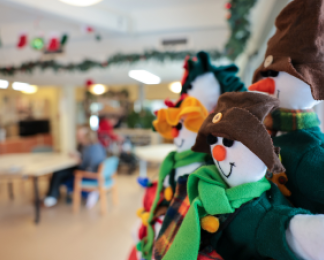
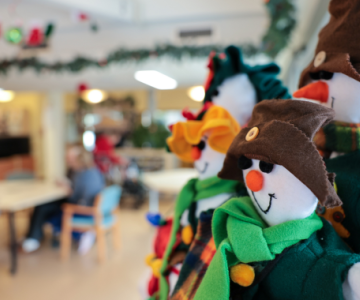
Those with dementia need special consideration during the holidays. Read our tips and advice to make the holidays enjoyable for everyone.
/stories/supporting-loved-one-dementia-during-holidays
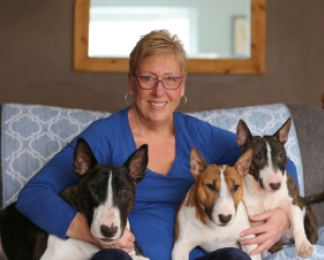

Loreen’s ability to keep calm under pressure, paired with her caring nature, have been integral to her success and to the quality of care that she provides.
/stories/we-are-ih-experienced-nurse-always-steps-when-needed


Many people like to do the Dry January challenge, but going dry isn't for everyone. Gain tips on reducing your alcohol consumption in the New Year and beyond..
/stories/thinking-going-dry-january-going-damp-great-option-too
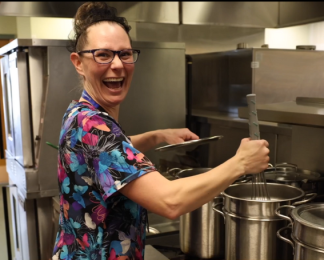
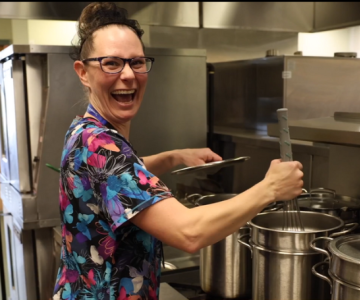
As we come to the close of 2024 we pause to reflect on the year and celebrate our achievements. Watch our short video of this year’s highlights across IH.
/stories/looking-back-and-celebrating-2024


All's well that ends well: For Kelowna health unit aide JQ, this simple phrase is more than advice—it’s a way of life.
/stories/we-are-ih-health-unit-aide-brings-positivity-every-day


The winter and holiday season can bring joy, but can also bring stresses and challenges. Explore these 10 tips for supporting for mental and physical health.
/stories/10-healthy-habits-winter-and-holiday-season
Receive news and alert posts, and Stories@IH blog posts, right to your inbox!
